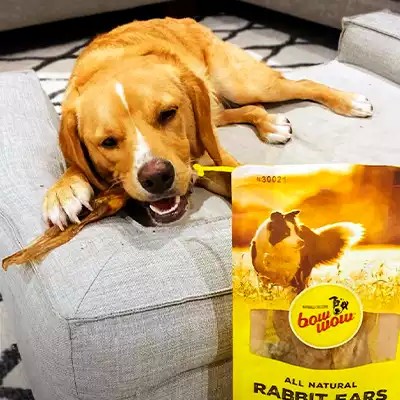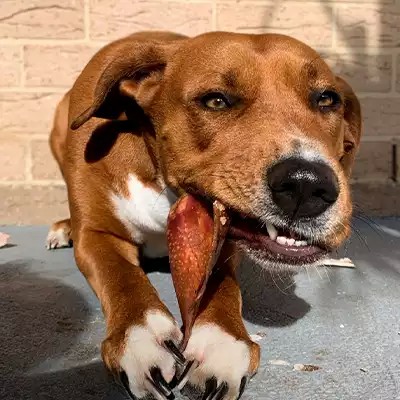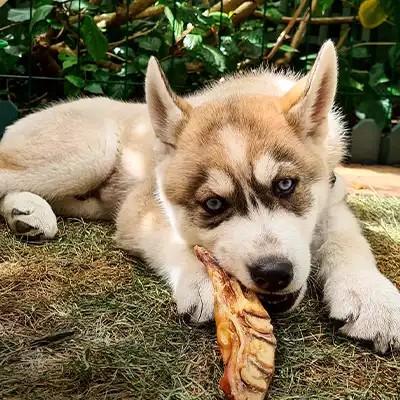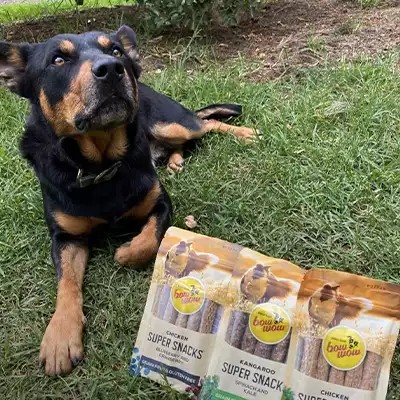News >
Choosing the Right Dog Breed for Your Lifestyle

If you’re considering getting a pup, the sheer number of different dog breeds can be overwhelming. How do you know which dog would be a good fit for you? While every dog is unique, certain breeds will fit better with your lifestyle.
So, you may be asking...
Which dog breed is right for me?
Whether you’re single, partnered, or have a family, bringing a dog into your life is an enormous responsibility, so it should never be taken lightly.
So, there are some questions that you should ask yourself before you begin to look for your new puppy.
How much experience do you have as a dog owner?
Will you be a first-time dog owner, or have you had a puppy previously? Do you already have one or two dogs?
Labradors are really sociable animals, so they’d be a great fit into an already large family. If you don’t have any other animals or
children to play with a new dog constantly, a Poodle might be a better breed for you.
Where do you live?
Do you have a suburban house with a large backyard? Or do you live in a small apartment without much room to play?
If you don’t have the room for a dog to roam around and keep itself busy, a small Maltese Cross is a good option for apartment living. But
if you have the space, a Border Collie loves to run around and play, and they’ll always be keen for a long walk or run.
Do you have young children?
Whether or not a dog will be safe and happy around your kids will play a significant role in your decision. You want your new puppy to be receptive to training, even-tempered, and playful enough to keep up with the energy in the house.
A French Bulldog is a great addition to a child-friendly household, as they’re gentle and sturdy enough to withstand a little bit of
horseplay. An Australian Kelpie might have trouble meshing with your young family members; their sheep-herding nature can run amok if they
aren’t carefully trained and looked after.
Can you handle a little noise?
Some dog breeds tend to bark more than others, so if you don’t have the tolerance to withstand a bit of noise, you should consider finding a dog that’s usually a little quieter.
Quiet dogs like a Dalmatian or a Greyhound are perfect for those who relish silence, but you should be ready for a lot of walking, as they
require plenty of exercise.
Are you prepared to groom your dog often?
Shedding can be a large issue for people with small living spaces; the hair can build up fast in a cosy place.
An Australian Terrier is a great option for a clean, low-maintenance dog. They still require a lot of exercise, and they can get a bit excited, so be ready for a lot of walks.
It would be best if you also considered other qualities, like the climate a dog prefers or how sensitive they are to negativity. Speaking to a breeder or the folks at the shelter can get you the right advice to find your perfect pup.
Whichever dog breed you find suits your lifestyle, training and playing with your new puppy requires a certain something to keep them
interested. That’s right – treats.
Find the right treat for your dog
The world of dog treats is vast, and finding the right one for your pup can be a little overwhelming, but we have a few tips to help narrow down the list.
With all dog treats, high-quality, natural ingredients are safer for your dog and taste better too. Chemicals, artificial colours, and too many preservatives can be harmful in large quantities, so it’s better to avoid them whenever possible.
Homemade treats and human food can be suitable for your pet if prepared safely and in moderation, but packaged treats are specifically made to keep your dog busy, happy, and healthy.
Different treats are suitable for different dog breeds; some are only good for the largest dogs, some are made for little dogs, and others are great for everyone.
How do you pick the right one for your dog?
Treats for big dogs
Big dogs love big treats; they keep them occupied while you’re busy and are great for their health.
For training, kibble or freeze-dried nuggets are convenient to carry and keep your dog’s attention on you. If you’re looking to keep your
dog’s attention on something else for a while, a Bully Stick or Pigs Ear will do the trick, and they’re great for your dog’s dental
health to boot!
Treats for medium dogs
Though they’re smaller than the largest dog breeds, medium dogs will still eat large portions, and that goes for treats too.
Anything but the biggest bones, animal parts, and biscuits are generally suitable for your dog. Some great options are Bow Wow Bully
Sticks or Pea-Mutt Butter Rolls , but anything they can get their teeth through is on the table.
Treats for small dogs
Small dogs can be tough to buy treats for, they’ll have a go at anything a big dog will, but it won’t necessarily be safe for them to chew.
Bow Wow Treat & Eat Beef Burgers can get your puppy the chewy snack they need, but any kibble or biscuit that is thin enough to bite or breakable so you can feed them piece by piece will keep your pet happy.
The most important thing to remember when you decide on the perfect breed that fits your lifestyle, is that by spending time with your dog
and challenging them to learn and grow, you’ll have a happy, healthy dog who will provide years of selfless and unconditional love.














